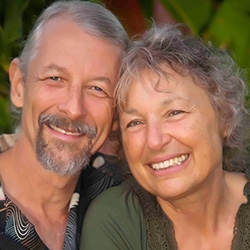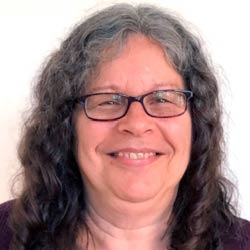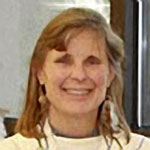
Search Results: interconnectedness
-
-
Jim leads a self-connection exercise focused on how our lives are interwoven with people we love, acquaintances, people unknown to us, and even those who have come before us or will come after us.
-
When we don't like what someone is saying to us, sometimes people encourage us to hear their needs, and "not take it personally" -- and we're inclined to agree. Could "not taking it personally" close our hearts and awareness to others, life and ourselves? Rachelle Lamb invites us to take a closer look at what it's like when we attend to the situation from our hearts, and skillfully reflect upon our actions with tenderness.
-
Could our "need for autonomy" be getting in the way of "partnership consciousness" (as NVC is sometimes called). Could "autonomy" also block healthy relationships with not only ourselves and with others, but also with the planet? This article invites us to consider how "autonomy" may colour our NVC practice at the peril of our critical values. Values such as our care for impact, shared responsibility, interdependence, compassion, consideration, and more...
-
Getting "feel good" empathy can become an addiction. Even to the point of seeing people who don't offer empathy as "not being NVC". Rachelle urges us to notice how this view of NVC can be seductive, and even dangerous. In this article, she explains how we can expand our compassionate awareness when we go beyond equating NVC with harmony and empathy. She asks us to become more open to noticing others' experiences even if it challenges our personal and collective belief systems -- and especially when it upsets us to consider it.
-
When does identifying our or others' needs become a coping mechanism that hides the real problems that go unaddressed, and thereby reinforcing problems? This article zooms out to take a look at how dealing with our needs in the absence of the larger picture can inadvertertly support unhealthy ways of operating, rather than become a healthy solution. It asks us to see what could be hidden -- both on the personal and societal levels.
-
Historically, work, education, resources, land, animals, and relationships were intertwined, shattered by capitalism and industrialization. We transitioned from communal self-sufficiency to individualism, industry, and smaller families. To avert extinction and thrive, we need to reconstruct social systems, emphasizing the commons, uniting communities with the land and resources in interdependent, regenerative harmony.
-
Join CNVC Certified Trainer Arnina Kashtan as explores interdependence, autonomy, valuing self and others, and power-sharing in your relationships. Free yourself to honor your longing for community, belonging, and love.
-
Observation is the awareness of our sensory perceptions and thoughts, separate from evaluations and judgments. Feeling involves bodily sensations and emotions, distinct from "faux feelings" that mix thought and emotion. Needs encompass universal human requirements for survival and wellness, while thoughts and evaluations express needs. Requests are rooted in connection and invite true willingness, rather than demanding compliance.
-
Observation is the awareness of our sensory perceptions and thoughts, separate from evaluations and judgments. Feeling involves bodily sensations and emotions, distinct from "faux feelings" that mix thought and emotion. Needs encompass universal human requirements for survival and wellness, while thoughts and evaluations express needs. Requests are rooted in connection and invite true willingness, rather than demanding compliance.
-
- Gain a deeper insight into the spiritual practice of NVC as taught by Robert Gonzales
- Enhance your emotional intelligence and self-compassion
- Learn compassionate self-talk techniques and cultivate more inner peace
- Approach change with a peaceful mindset, rather than anxiety and fear
-
Developing interpersonal relationship skills in congregations is integral to working with the conflicts that arise. These skills can be applied to any spiritual community.











